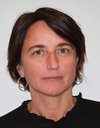
Milena Corredig has been a Full Professor in Food design and technology since 2006, at University of Guelph and since 2019 at Aarhus University, in the FOOD department. She is currently also CiFOOD Center Leader. Prof. Corredig completed her Bachelor studies at the University of Milano, Italy, and her Master and PhD in Food Science from the University of Guelph, Canada.
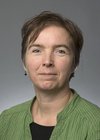
I study vegetables, their growth and the relationship with soil fertility. New cropping systems, cover crops and deep roots play a major role to increase the nitrogen use efficiency and decrease the leaching of nitrate of the production system. I work on the development of plant based fertilisers and soil improvers, for example by use of legume biomass and recycling of waste for composting. The aim is to build soil quality and carbon, while securing high vegetable yields. To attain new knowledge about the interactions in agro-ecosystems, we conduct large field trials under organic or conventional farming practice. We analyse for nitrogen, other nutrients and microbial activity in soil and plants, as well as register root growth by the use of minirhizotrons to 2.5 m soil depth. The focus is on the large volume vegetables such as cabbages, root and leafy vegetables and leeks, as well as legumes.
Research focus is around meat quality as well as studying nutritional effects of naturally occurring food components using in vitro cell based model systems. Combining meat science and in vitro cell based techniques including primary muscle cells has led to interest in several aspects of cultivated meat.
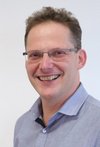
Prof Dr Leo Marcelis is head of the chair group Horticulture and Product Physiology at Wageningen University, The Netherlands. This group holds a strong position in research and education on greenhouse horticulture, vertical farming and post-harvest quality Marcelis has a vast experience in studying the physiology, growth and product formation of plants and plant organs in order to improve sustainability and quality of crop production in greenhouses and vertical farms. In particular fluxes of assimilates, water and nutrients in the plant, sink/source interactions and partitioning among plant organs in response to abiotic constraints are subject of study. LED lighting in greenhouses and vertical farms is a major theme in his research. At the moment he is leading large multidisciplinary research programmes on vertical farming and LED lighting in greenhouses in which universities and private companies cooperate.
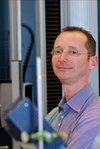
Remko M. Boom has been a full professor of Food Process Engineering at Wageningen University since 1998, and holds visiting professorships at Tsukuba University (Japan) and Nanyang University of Technology (Singapore). He was scientific director of the Graduate School / Programme VLAG (food technology, nutrition, molecular sciences and agro-biotechnology) from 2011 to 2015, and worked for Unilever Research from 1992 to 1998. His research interests revolve around the exploration of new principles to more sustainably produce healthier products: new ways to isolate ingredients, new ways to structure foods, and thermodynamic assessment of complex production systems using thermodynamics. His group was found to be excellent in all aspects (scientific quality, societal relevance and viability) in the most recent international expert review, and was characterised as globally leading in its fields. He is member of the Academic Advisory Board of the Institute for Sustainable Process Technology (ISPT), is member of the leadership team of the European Technology Platform Food for Life, is scientific director of the Sustainable Food Initiative, and participates in the top institutes on process technology (ISPT), and on food and nutrition (Top Institute Food and Nutrition, TIFN). He has currently (co-)published more than 395 peer-reviewed publications (Scopus), and has successfully graduated 68 PhD students to date. He received the Royal Dutch Shell Study Tour Award for his PhD work in 1993.
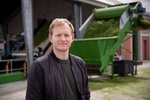
Morten Ambye-Jensen carries out research and development within green biorefining technologies including separation of proteins from grasses and legumes. He has a solid background and experience in process engineering and biotechnology, bringing green developments from lab- to demonstration scale. He is group leader of Green Biorefining Technologies at AU Engineering and manager of the AU Demonstration Platform for research and development in green biorefining.
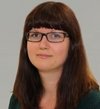
Dr. Susanne Struck studied Food Technology at the Technische Universität Berlin and works now as post-doc researcher at the Chair of Food Engineering within the Institute of Natural Materials Technology at Technische Universität Dresden. Her research is focused on sustainable food production with special interest in fruit juice processing by-products. Other research areas involve bakery products, food extrusion and microalgae.

Lotte Bach Larsen is a professor at Department of Food Science, Aarhus University, Denmark. She has published more than 120 international, peer-reviewed articles, as well as several book chapters. Lotte Bach Larsen works within properties and molecular structures of milk proteins and milk composition, including proteolysis. She is using proteomic and peptidomic methods for analysing and profiling of food proteins and peptides as well as natural and process-induced protein modifications. She was a Member of Scientific Advisory Board for International Symposium on Milk Genomics and Human Health in Aarhus (2014 and 2019), and received the Milk Prize as member of the Danish team behind the Milk Genomics Initiative in Denmark, which was awarded by the Danish Dairy Board in 2017 to acknowledge its contribution to the basic understanding of the relations between cow genes and milk fingerprint and its resulting properties. She is a Member of Aarhus University Research Foundation steering committee from 2020.
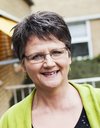
Dr. Merete Edelenbos is an Associate Professor at the Department of Food Science, Aarhus University, Denmark. Her research is focused on handling and storage of fresh fruit and vegetables to maintain food quality from farm to fork while minimizing food losses and waste. Dr. Edelenbos has a background in postharvest physiology and technology, plant food quality, minimally processing, and sustainable packaging of fresh and fresh-cut fruit and vegetables.
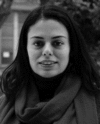
Ilke Uysal Unalan is an Assistant Professor in the Department of Food Science, Aarhus University since April 2020. IUU research interests focus on the green sustainable packaging strategies using nanotechnological routes and active packaging for shelf life extension, biodegradability/compostability of polymers and fundamental understanding of release mechanism from (bio)polymer matrix. IUU obtained a PhD in the field of Food Packaging, from the University of Milan focusing on the high gas barrier graphene based (nano)coatings. She then spent 2016-2017 as a postdoctoral scientist at the School of Packaging, Michigan State University working on polymer processing/characterization, biodegradation of nanocomposite films and release of nanostructures from polymer systems. In 2017-2018, IUU joined the Laboratory of Food and Soft Materials at ETH Zurich where she focused on the amyloid fibrils-graphene polymeric membranes for the food packaging applications.
IUU has served as a member of the Management Committee and the Short Term Scientific Missions Committee of a recently awarded EU COST Action called CIRCUL-ABILITY CA19124- RETHINKING PACKAGING FOR CIRCULAR AND SUSTAINABLE FOOD SUPPLY CHAINS OF THE FUTURE which is an international networking project connecting more than 180 researchers interested in various aspects of food packaging science.

Rafael Auras is a professor with the School of Packaging at Michigan State University (MSU). He leads a research group of graduate and undergraduate students interested in mass transfer in polymers, biodegradable polymers, life cycle assessment, and development of packaging systems for sustainable development. He has conducted research projects for Fortune 500 companies and government sponsored research projects. He is a regular speaker at national and international conferences. He has coauthored more than 200 publications. Rafael graduated with a B.Sc. in chemical engineering from the FCEQyN, Misiones, Argentina, an M.Sc. in Materials Science and Technology from the UNSAM, Buenos Aires, Argentina, and a Ph.D. in Packaging from MSU, East Lansing, MI, U.S.
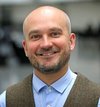
Francisco Vilaplana is Associate Professor and Head of the Division of Glycoscience at KTH Royal Institute of Technology (Stockholm, Sweden). He is a multidisciplinary researcher with competences on chemical (process) engineering, polymer/material sciences, analytical chemistry, and carbohydrate biotechnology. Francisco leads the research group “Biotechnology of Carbohydrates from Biomass”, with the vision to exploit the rich molecular diversity in terrestrial and marine biomass towards novel functional products for food, biomedical and structural applications (e.g. food packaging). His group targets a wide range of biomass feedstock, including terrestrial plant sources (cereals and wood), fungi, and algae. His research activities involve (i) the development of advanced analytical methods to decipher (sequence) the molecular structure of complex carbohydrates, (ii) understanding the architecture and assembly of plant and fungal cell walls, (iii) design of 'biorefinery' processes for biomass exploitation using green chemistry and biocatalysis, (iv) chemo-enzymatic modification of carbohydrates for material and food applications, and (v) correlating dietary polysaccharide structure with nutritional properties. Dr. Vilaplana is Honorary Research Fellow at the Centre for Nutrition and Food Sciences, The University of Queensland (Australia).
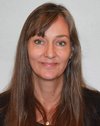
Associate Professor Marianne Hammershøj has more than 25 years experience in research in food science. The primary research focus has been on food structure and functional properties, i.e. gelling, foaming, and emulsification of protein-, lipid- and carbohydrate based foods. Her experience has developed from egg products, milk, dairy products, towards plant based products. The interrelationship between food microstructure and food textural properties is important to provide high quality foods and to understand how to build desired food textures.

Mario Martinez joined Aarhus University in April 2020 and his research focuses on understanding the structure, hydrodynamics and interactions of carbohydrate polymers and food structures. His research program is centered on understanding carbohydrates and their interactions with polyphenolic compounds during food processing and digestion. He is also interested in new generation bio-refinery approaches of agricultural and aquatic biomass into biofunctional polymeric streams. In addition, he is interested in mesoscale food and bio-based food packaging structuring using edible plant compounds, such as starch and cell wall polysaccharides, and twin-screw extrusion technologies. For instance, Mario has provided key insights on starch structure-texture-digestion relationships, phenolic-carbohydrate interactions, shear-scission of glycosidic bonds, mesoscale structuring of plant foods, and the valorization of food and agricultural waste.

Ulf Andersen is a Senior Research Scientist at Arla Innovation Centre. He has worked 20+ years in the field of food structure and functionality of dairy products with a special focus on using food microstructure studies to link processing conditions to final product properties. Much of this work has been carried out via collaboration projects with numerous universities.

Zachary’s research focussed on the applications of advanced microscopy and ultrasound spectroscopy to investigate the structures in dairy systems. Combinations of super-resolution Stimulated Emission Depletion (STED) Microscopy, Confocal, Coherent Anti-Stokes Raman Scattering (CARS) microscopy, Multi-photon Excitation microscopy and Fluorescent Lifetime Imaging Microscopy (FLIM) were used to image dairy gel microstructures. A range of quantitative image analysis methods were developed based on 2D spatial cross-correlations to extract relevant, physical parameters from the images, which can significantly differentiate sample types. This work illustrate how can advanced microscopy work can provide importance information of food structure and help to understand the how processing impact food functionality.

Dr. Olivia Petit is an Associate Professor in Marketing at KEDGE Business School. She obtained her PhD at Aix-Marseille University, France, in 2014 (CERGAM, IAE - Business School of Management / Laboratory of Cognitive Psychology (LPC) - FED 3C (Behaviour, Brain, and Cognition). Her thesis has been rewarded by the Nestlé Foundation in 2012 and by the EMAC McKinsey Marketing Dissertation Award in 2015. Her research interests focus on consumer neuroscience, sensory marketing, and digital marketing. Her research methodology includes behavioral and functional Magnetic Resonance Imaging (fMRI) studies. Dr. Olivia Petit is particularly interested in the role of mental imagery and (multi-) sensory interactions in consumer (online) experience. Her research has been published in marketing (Journal of Business Research, Psychology & Marketing, Journal of Interactive Marketing, Marketing Letters), neuroscience (Brain and Cognition, Behavioral and Brain Sciences), psychology (Frontiers in Psychology), and food (Food Quality and Preference, Appetite) academic journals.

Since 2017 Lina has been assistant professor at Aarhus University, Department of Management, where she is affiliated with the MAPP Centre. She completed her master studies at Aarhus University and Wageningen University followed by a PhD at Aarhus University. Her PhD focused on consumer integration in new food product development. Her current research areas cover co-creation between consumers and food companies, consumer interaction in online communities, and marketing of co-created products.
Janice takes an interdisciplinary approach to the investigation of multisensory flavour perception and preference. In specific terms, she focuses on studying the role of the brain sensory system and its connection with eating behaviour, in order to gain a deeper understanding of why people eat what they do, and to encourage behaviour change for a healthier, more sustainable lifestyle. To achieve this goal, she works to develop new ways to evaluate the consumer experience - from opinion mining to virtual reality to biometric measurements.

Tjark Andersen is a PhD student of food science at Aarhus University. His research focuses on the interaction between food-related digital media usage and healthy eating behavior, with the objective of scientifically mapping the effects of digital media usage and developing practical proposals to support their integration into a healthy lifestyle. Tjark obtained his master’s degree in Food Science and Technology from the University of Copenhagen, and has professional experience as a Chemometrician/Data Scientist in industry. His interest lies within the fields of nutrition, psychology, and data science.
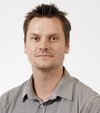
Research in food-drug interactions. Especially focusing on the effects of various plant compounds on the regulation of the cytochrome p450 enzymes system in hepatocytes. Research in the mechanisms behind the effect of energy status (e.g. fasting or periods of high fat dieting) on the cytochrome p450’s are also included.
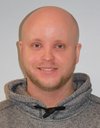
Søren is a postdoc at Department of Food Science, Aarhus University. Sørens research activities involve a broad range of techniques and projects spanning from analytical chemistry to nutrition. but has mainly centered around three topics 1) Protein quality 2) analytical mass spectrometry methods 3) in vivo/ in vitro studies on bioactivity of food components. His overall research goal is to enhance quality of food-grade protein and to improve consumer health benefit. Søren has been studying the quality of protein-rich food products, more precise the breakdown of proteins and the extend of natural and process-induced post-translation protein modifications. Furthermore, Søren has been mapping the digestion of mother’s milk proteins and supplemental bovine milk proteins in the preterm and term infants’ gut and investigated bioactivities of these digests on human health. Søren has been developing different online available bioinformatic tools to support his research.
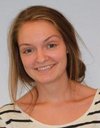
My main research focus is within nutritional metabolomics using NMR spectroscopy. During my PhD studies, I have focused on investigating whether modulation of processed meat products can be used to beneficially modify endogenous responses in the gastrointestinal tract following ingestion.

Bruce R. Hamaker is Distinguished Professor of Food Science at Purdue University, West Lafayette, Indiana. He also holds the Roy L. Whistler Chair and is Director of the Whistler Center of Carbohydrate Research. He obtained his undergraduate degree in biological sciences from Indiana University; his graduate studies were in human nutrition (M.S.) and food chemistry (Ph.D.) from Purdue University, and post-doctoral study at the Instituto de Investigacion Nutricional in Lima, Peru (supervisor, George Graham, Johns Hopkins University). He was in the U.S. Peace Corps in Liberia, West Africa from 1977-1979. He has over 250 refereed publications in food science, human nutrition, biochemistry and broad-spectrum journals, as well as numerous book chapters. He has advised about 70 M.S and Ph.D. students and over 25 post-doctoral scientists. Bruce’s research is known in the area of food carbohydrates and proteins with applications related to topics of processing, nutrition, health and wellness. He has been and continues to be active in international research collaborations in Africa, Asia and Latin America; and particularly in development-oriented research and applied programs in West and East Africa.
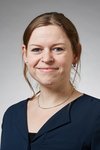
I am Registered Dietician with an MSc in Clinical Nutrition. I am currently undertaking a PhD at the Department of Hepatology and Gastroenterology at Aarhus University Hospital. My primary research revolves around the absorption of peptides, fluid, and electrolytes, and improving health and well-being in people with ileostomies through nutritional interventions.